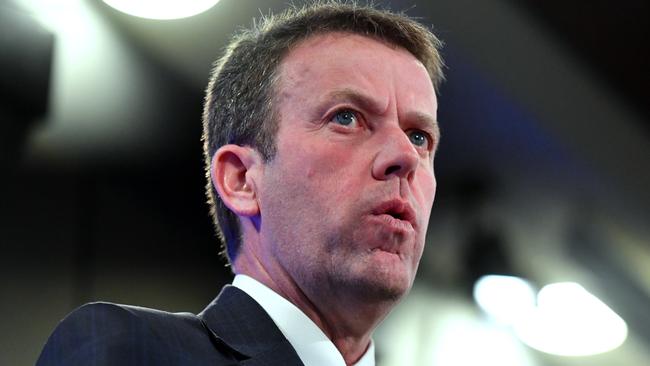University reforms set to create shortfalls in Victorian job market
Controversial university reforms are expected to create shortfalls in key growing Victorian job markets, with no modelling offered to show the impact of changes that double the cost of some degrees.

Controversial university reforms are expected to create shortfalls in key Victorian job areas that face future growth.
No federal government modelling has been offered to show the impact of the Jobs-ready Graduates Package, which will double the price of some degrees.
But Victorian Government figures show industries with expected jobs growth rates of up to 10 per cent by 2025 would be affected by changes set to deter students from studying costly subjects.
Under the Jobs-ready Graduates Package, student contributions for management and commerce degrees will increase by $3,145 a year, to $14,500, while Commonwealth contributions will drop 50 per cent.

The jobs those degrees feed into — administration and support services, public administration and safety, and professional, scientific and technical services — are expected to face growth of 8 to 10 per cent between 2020 and 2025 in Victoria.
Financial and insurance jobs — set to grow 5 to 7 per cent in pre-pandemic estimates — would also be hit as students seek cheaper degrees.
The Herald Sun asked the office of Federal Education Minister Dan Tehan whether the needs of different states and territories’ jobs markets were considered in drafting the reforms, or if there was modelling on the anticipated impact.
No answer was provided to these questions in a response from the Federal Department of Education, despite follow up inquiries.
The reforms more than double the cost for some humanities degrees, but make studying STEM subjects (Science, Technology, Engineering and Maths) cheaper.
Other in-demand Victorian jobs markets where the reforms could deter study include law and economics, social studies, political science, behavioural science and communications.
Victorian Higher Education Minister Gayle Tierney wrote to Mr Tehan 24 days ago (Sept 8) asking for a meeting while raising concerns.
Mr Tehan has not formally responded.
“The Minister will respond to Ms Tierney’s letter in due course,” a department spokeswoman said.

Ms Tierney said “any changes that would reduce Victorian universities’ ability to educate the workers the state needs –— particularly in high-demand sectors — would be detrimental for Victoria’s economic recovery and growth in the wake of the coronavirus pandemic.”
The federal department spokeswoman said healthcare, professional, scientific and technical services, education and training, and construction, were “projected to provide 62 per cent of total employment growth over the next five years” in Australia.
Senator Jacqui Lambie has savaged the reforms, saying, “I’ll be damned if I’m going to be the vote that tells the country that poor people don’t get dream jobs”.
The Federal Government will need the support of Centre Alliance senator Stirling Griff to pass the bill through the upper house.
UNI FEE OVERHAUL
Law degree: From $11,335 to $14,500
Humanities degree: From $6804 to $14,500
Nursing degree: From $6804 to $3,700
Mathematics degree: From $9698 to $3,700
IT degree: From $9698 to $7,400
Engineering degree: From $9698 to $7,400
Agriculture degree: From $9698 $3,700
Communications degree: From $6804 to $14,500
Annual student contributions for course from 2021
